Despite President Muhammadu Buhari’s promise to improve education funding and allocation to the sector, Nigerian students have continued to troop abroad, and in droves in pursuit of foreign education.
So far, the Central Bank of Nigeria (CBN) data on payment analysis has shown that citizens have spent about $4 billion on foreign education since the outgoing administration came on board.
The apex bank’s figures on educational services, under the sectoral utilisation for transactions valid for foreign exchange, showed that $375.99 million was released between June 2015 and December 2015, when President Buhari assumed office.
Additional releases showed that $269.1 million was released in 2016; $514.16 million in 2017; $546.78 million in 2018, and $197.52 million in 2019.
Similarly, $270.42 million, $720.05 million, and $609.5 million were released for 2020, 2021 and August 2022, respectively.
However, FX accessed from the parallel market or other sources by parents and guardians may not be captured, which could suggest that the figures are understated.
On the other hand, the Nigerian economy and universities are yet to receive any form of inflow from foreign students, signifying an unfair balance of payment.
Indeed, Nigeria has recorded a huge flux of migration to other countries in recent times, mostly through the education route. This is particularly because education has proven to be one of the easiest ways to receive visas from European countries, especially the United Kingdom.
Nigerians who want to relocate abroad now apply for admission to foreign universities and upon admission, apply for study visas, which allow them to work and school in the host country during the course of their study.
According to experts, the huge net dollar outflows have dual adverse effects of under-investment in domestic education and pressure on naira exchange rate, while high demand for dollars to pay foreign educational institutions also affects Nigeria’s external reserves.
Foreign education spending requires the availability of foreign exchange, something that the country currently is in short supply of. The increased demand for the dollar to pay for foreign services and speculative needs have caused a significant depreciation in the local currency against the U.S. dollar.
Apart from industrial actions, Nigerian tertiary institutions suffer from dearth of teaching and learning facilities, with the various unions insisting that more than N1 trillion would be needed to fix the rot in the institutions.
There is also the challenge of space; with roughly two million candidates sitting for Unified Tertiary Matriculation Examination (UTME), less than 50 per cent of qualified candidates are admitted.
Although the United Nations Educational, Scientific and Cultural Organisation (UNESCO) recommended that developing countries should give up to 26 per cent of their yearly budget to public education, Nigeria’s allocation to the sector is still less than 10 per cent.
Consequently, of the N55.3 trillion budgeted by the Federal Government in the last six years, only about N3.8 trillion was allocated to education and this represents less than 10 per cent.
Though Ghana and South Africa have not actually met UNESCO’s recommended 26 per cent, they have done far more than Nigeria, allocating a maximum of 23 and 16.7 per cent respectively.
In 2016, of the N6.06 trillion total budget, N369.6 billion or 6.7 per cent was allocated to public education in the country. In 2017, N550 billion or 7.38 per cent was allocated to education out of the N7.29 trillion budget, while in 2018; N605.8 billion or 7.04 per cent was given to education out of the N9.2 trillion budget.
In 2019, N620 billion or 7.05 per cent was allocated to education out of N8.92 trillion, while in 2020, N671.07billion, or 6.7 per cent was given to the sector out of N10.33 trillion.
In 2021, N742.5billion or 5.6 per cent was allocated to education out of a budget proposal of N13.6 trillion. Out of the 2022 budget totaling N17.13 trillion, a sum of N923.79 billion was allocated to the sector.
Though the figure increased, the budget remained at 5.4 per cent of the total budget approved by the National Assembly. In the 2023 budget, the sector got N1.79 trillion, representing 8.2 per cent of the appropriation bill.
According to reports by the World Bank, Ghana, on the other hand, allocated 23.81 per cent of its national budget to education in 2015, 22.09 per cent in 2016, 20.1 per cent in 2017 and 18.6 per cent in 2018.
South Africa has continuously increased its allocations to the sector from R246 billion or 16.7 per cent in 2018, R310 billion in 2019, R387 billion in 2020 and projected that it’ll hit R416 billion by 2023/24.
Though South Africa’s allocations in the period varied from 14.4 to 16.7 per cent of the total budgets in the years under review, the performance was much better than Nigeria’s.
If you think education is expensive…
An umbrella organisation of Nigerian students studying in Europe and Turkey, the Association of Nigerians Students in Europe (ANSE), said over three million Nigerians are currently studying in higher institutions in different countries across Europe.
British Home Office data showed that the number of UK study visas issued to Nigerians rose by 222.8 per cent from 20,427 in June 2021 to 65,929 in June 2022.
Aggregated data showed that international undergraduate students in the UK pay yearly £13,394 for classroom taught courses, and £15,034 and £24,169 respectively for laboratory and clinical courses. Postgraduate students pay £13,442, £15,638, and £20,956, respectively for the classroom, laboratory, and clinical-based courses. For MBA students, the tuition is £18,226 on the average.
In addition to tuition, the UK’s National Union of Students (NUS) noted that the average yearly cost of living outside of London for students is £12,056. To study in London, Nigerian students part with about £16,000 per year.
For visa purposes, international students pay at least £1,265 for each month of stay, while those outside London pay at least £1,000 per month to prove that they can cover the cost of living in the UK.
Study in-uk.com noted that undergraduate fees for international students from outside the EU begin at around £10,000 per year. At the postgraduate level, they start at around £12,000, and for those wishing to study medicine or MBA, they may have to pay about £32,000 per year.
The average living cost for international students is £12,180 per year. This can be much lower or higher, depending on where in the UK you wish to study. For example, in London, living expenses are considerably higher than the equivalent cost in a different city such as Liverpool or Birmingham.
As of 2019, a student in the UK paid $35,710 on average yearly (tuition and living expenses). According to one estimate, Nigerian parents spend above the Federal Government’s yearly budget of $750 million to educate their children in the UK.
Another estimate puts the total average cost of studying in the UK at £32,200 or $31,380 per year. Going by the estimates, Nigerian parents spent $423 million in the UK or N152 billion.
Multiple factors, including rising insecurity and kidnapping, incessant strikes by university unions, youth unemployment and poor funding of tertiary education sub-sector compared with global standards, are contributing to students’ interest in foreign education.
Besides, the availability of post-study work options, improved job opportunities coupled with a perceived preference for foreign degrees by Nigerian employers are also contributory factors.
Since 2015, the preferred destinations for Nigerian students are the United Kingdom, followed by the United States, Canada, Australia and Malaysia.
Thousands also study in other countries, including Turkey, Ukraine, Hungary, Finland, Cyprus, Italy, Romania, France, Ireland, Poland, Estonia, Greece, Sweden, Netherlands and Norway.
According to a survey by the UK’s Higher Education Statistics Agency, for the third consecutive year in 2021, the UK achieved favoured status, previously held by the United States. Nearly 30 per cent of international students preferred Britain, 24.5 per cent favoured the U.S and 16.5 per cent chose Australia, with Canada coming in fourth at 15.8 per cent.
For the UK, applications from Nigeria were said to be up by 83 per cent, for Pakistan by 53 per cent and India by 13 per cent.
Nigerians spend N14 billion yearly to study in Ukraine
Ranked as the nation with the fifth most populous international students in Ukraine, Nigerians are said to be spending an estimated N14 billion yearly to acquire degrees in the second largest country in Eastern Europe, before the advent of the war, which disrupted learning, findings have shown.
According to the Ukraine Centre for International Education, there were 4,379 Nigerian students in the country, most of them studying medicine-related courses.
Based on the calculation by the Ukrainian centre, each international student in the country spends an average of $6,000 to $8,000 yearly, according to data compiled by Erudera, a higher education search platform.
The platform further noted that based on the figure, Nigerian students in Ukraine spend annually between $26 and $35 million, an equivalent of between N10.8 and N14.5 billion based on N415 per dollar exchange rate at Nigeria’s official market.
The United States, with its very good schools offering quality education and tons of extra-curricular activities, is a toast among Nigerian students.
According to the data, 14,438 Nigerians enrolled for education in the U.S in 2022 as against 12,860 recorded in 2021. The number of Nigerian students enrolled in U.S tertiary institutions increased by 12.3 per cent in the 2021/2022 academic year when compared to the previous 2020/2021 session.
Canadian universities and colleges are recognised for high standards for education, variety of programmes and friendliness to international students.
Nigerian students are heading to Canada in record numbers despite Nigeria’s economic downturn, according to new data from the Immigration Refugees and Citizenship Canada (IRCC).
According to the IRCC data, the number of new study permits for Nigeria increased by 30.3 per cent to 13,745 from 10,550 in 2020, making it the ninth most popular source country for international students. This is the highest in 22 years.
The United Arab Emirates has more than 1,755 Nigerian students studying over there, while Hungary, which according to a UNESCO survey is gradually becoming a destination country for foreign education, has over 700 Nigerian students studying there.
In Malaysia, there are lots of Nigerians pursuing undergraduate and postgraduate studies. Reports have it that there are over 13,000 Nigerian students in Malaysian universities.
Ghana is another major country where Nigerian students go for foreign education. In 2022, over 78,000 Nigerian students were in universities across Ghana compared to 13,919, according to a UNESCO report in 2016, a whopping 560.38 per cent.
Nigerians are also seeking university education in unlikely – even at times bizarre – places in search of ‘foreign certificates.’
For instance, different kinds of universities in the Republic of Benin have become the go-to institutions of learning for Nigerians. The Federal Government’s worry about the attraction of the youngsters and their sponsors to Benin is that the little nation is riddled with illegal universities, which have sprung up to satisfy what seems to be an insatiable desire for university education by Nigerians.
Not long ago, the Nigerian government blacklisted 52 non-accredited universities in Benin Republic and declared at least 51 illegal in Nigeria. In addition, the government explained that the institutions are sub-standard, pointing out that Nigerian students are being exploited in countries such as Ghana, Togo and Sudan.
There are about 10,000 Nigerian students studying in Sudan, according to student organisations, though reports said about 6,000 had returned home for the holiday before the crisis began.
Governments, stop mouthing good education!
Experts have attributed the decadence in university education to years of poor funding, incessant strikes by university teachers, poor admission standards, corruption, and fraud.
Citing poor funding and long years of neglect by successive governments, stakeholders expressed regrets that Nigerian institutions cannot compete globally in terms of standard and quality.
Former Vice Chancellor, Federal University, Oye-Ekiti (FUOYE), Prof. Kayode Soremekun, said a dysfunctional education system, which empowers unions to take decisions, contributed to academic instability on campuses, forcing Nigerian youths to embrace foreign education.
He lamented that the Nigerian university system is over-unionised, and incessant strikes by the various unions extends academic sessions.
Soremekun stressed the need to put in place necessary infrastructure that would aid teaching and learning, saying this is one of the conditions to attract foreign students.
Prof Adebayo Adeyemi, former VC, Bells University of Technology, Ota, lamented that challenges of poor funding and infrastructural facilities, non- dynamic curricular, overbearing actions of supervisory agencies inconsistencies in educational policies as well as perennial strikes by university workers, which makes it difficult for Nigerian graduates to compete with their peers in developed countries.
“In all these, the Nigerian graduate finds it extremely difficult to compete favourably with his/her peers in developed countries in terms of excellent performance on the job or in institutions of higher learning. Worse still is the sub-standard and non-dynamic primary and secondary education systems,” Adeyemi stated.
To reduce foreign education spending and discourage Nigerian youths from seeking foreign certificates, Adeyemi said there is need for a holistic approach to fund Nigerian universities.
He said: “A prevailing situation that universities and other tertiary institutions are underfunded and the government’s failure to meet the expectations of Nigerian universities based on the document: “Needs Assessment in the Nigerian education sector” of 2014, which has been the reference document at reviving the Nigerian University System.”
According to him, implementation of ‘Needs Assessment’ should cut across primary, secondary and tertiary levels.
He warned that failure to ensure this may force more Nigerian students and their parents to pursue foreign education.
In addition to making learning conducive, Adeyemi tasked political leaders to lead by example by ensuring their children have their university education in Nigeria.
To make Nigerian universities attractive, especially to foreign students, the former vice chancellor said a multi-dimensional and strategic approach would have to be adopted in addressing the rots and challenges in the university system
“With sincerity, determination, judicious use of the nation’s resources, fairness, collectiveness, strategic planning and inclusiveness, which should take care of private universities.”
On his part, a professor of History, Ayodeji Olukoju, said to make Nigerian universities attractive, government must invests heavily in infrastructure, teaching, laboratory and library facilities in public tertiary institutions; recruits and pays competitive wages to high-quality staff; and sets minimum standards of foreign universities that can be attended by Nigerians, as an advisory.
Besides, Olukoju urged the government to especially fund specialist federal universities for postgraduate studies and those dedicated to producing graduates in fields where the country suffers huge deficits, such as medicine.
To make Nigerian institutions attractive, Olukoju said there is the need to audit and classify, which is best fit for undergraduate or graduate training in the public and private universities in terms of quality of staff, infrastructure, facilities and governance systems.
He added that there should be a selection of institutions to be developed as flagship universities over five, 10 and 20-year (short, medium and long-term) development time frames, with targets and matching funding.
Olukoju further stressed the need to identify degree programmes in demand and select public universities to be specially equipped to produce graduates for both domestic and foreign job markets.
He also tasked the government to pay competitive wages to qualified staff to attract sound minds to the university system.
A public analyst, Michael Effiong, said Nigerian students migrating to foreign countries for their undergraduate and postgraduate studies would negatively weaken the country’s currency via exchange rate.
Besides, he added that learning in foreign countries is flexible and gives room to explore other options.




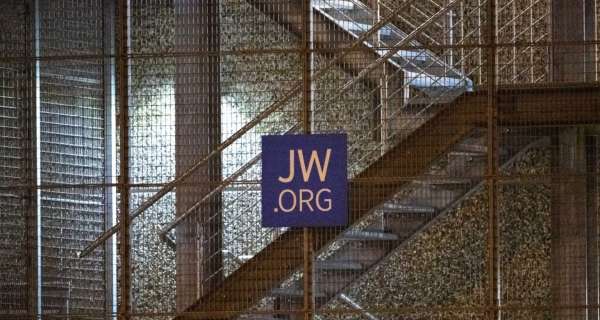
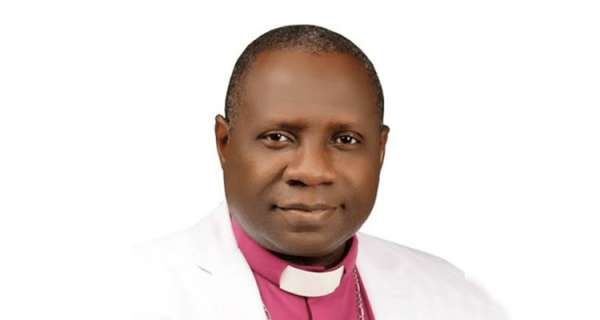


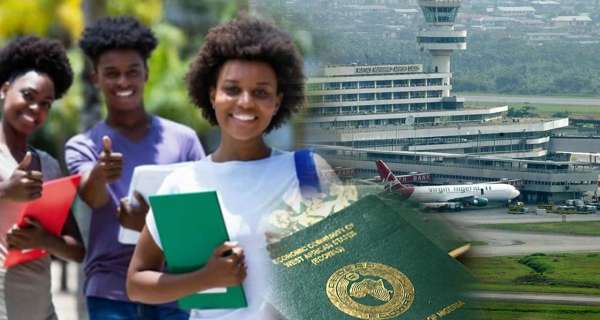


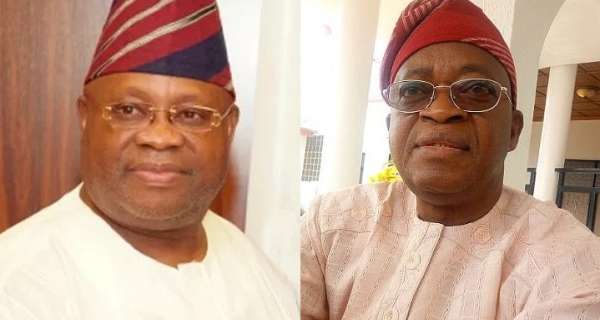








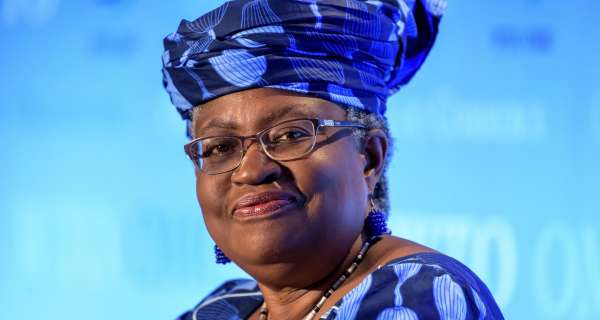
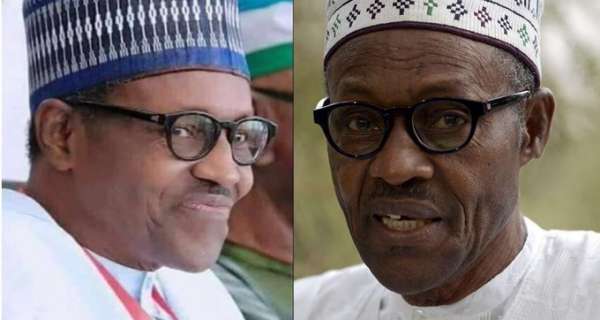
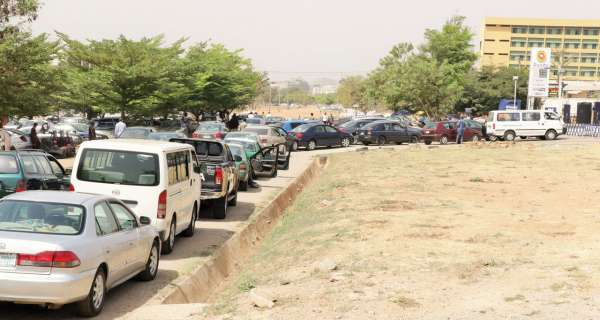





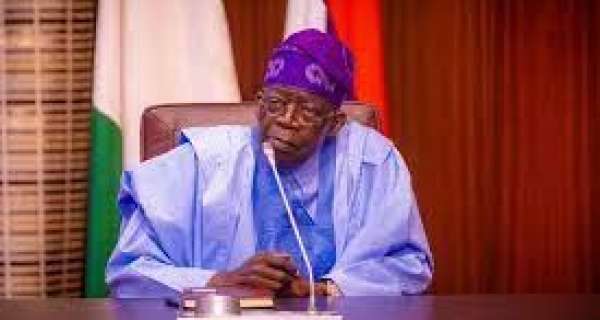
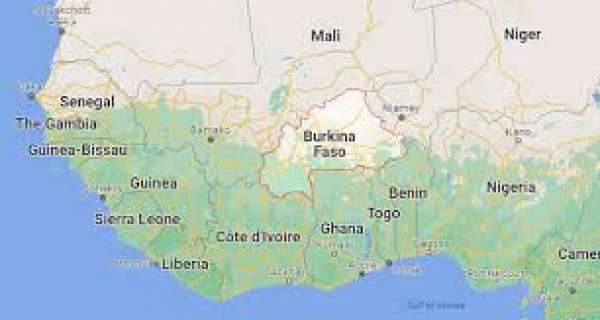
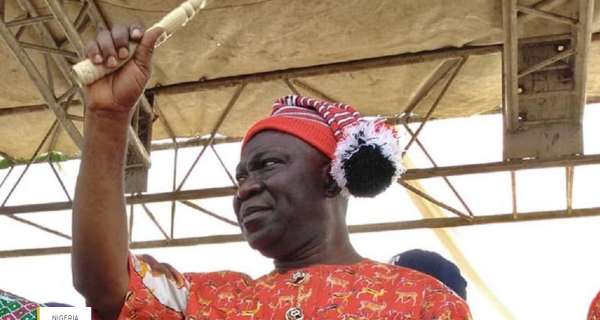
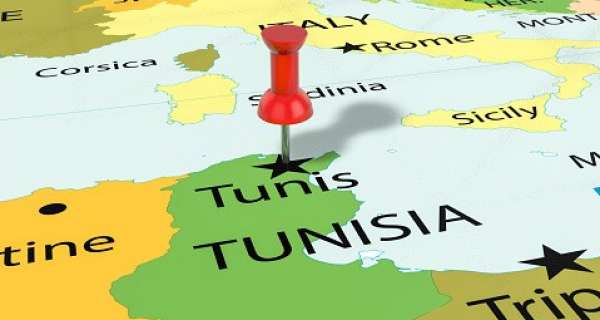


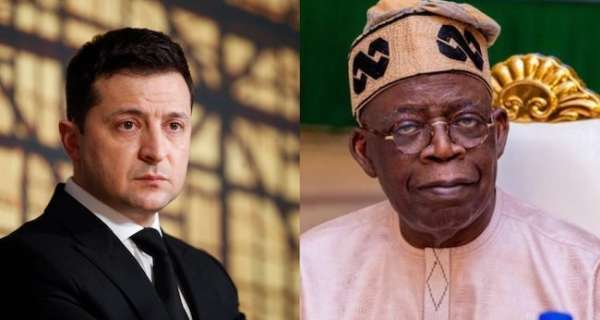

0 Comments